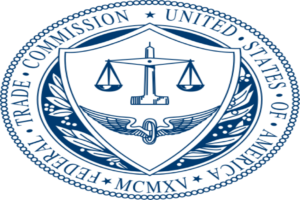
“When consumers buy products from online marketplaces, the identity of the seller is often unclear,” the FTC stated in the guidance. Congress passed the Integrity, Notification, and Fairness in Online Retail Marketplaces for Consumers Act – or the INFORM Consumers Act – with the purpose of “adding more transparency to online transactions and to deter criminals from acquiring stolen, counterfeit, or unsafe items and selling through those marketplaces,” the FTC said.
The INFORM Consumers Act defines an “online marketplace” as a person or business that operates a consumer-directed platform that allows third-party sellers to engage in the “sale, purchase, payment, storage, shipping, or delivery of a consumer product in the United States.”
Collection and Verification Requirements
Online marketplaces covered by the law must collect and verify certain bank account information, contact information, and a tax ID number from “high-volume third-party sellers,” defined as “a seller in an online marketplace that, in any continuous 12-month period during the past 24 months, has had on that platform 200 or more separate sales or transactions of new or unused consumer products; and $5,000 or more in gross revenues,” the FTC stated in the guidance.
“In calculating the number of sales or amount of gross revenues for the ‘high-volume’ threshold on a given online marketplace, the only sales that count are ones made though that online marketplace and for which payment was processed by the online marketplace, either directly or through its payment processor,” the FTC added.
Collecting the data in a timely manner is also important. Once a person or business meets the definition of a “high-volume third-party seller,” the online marketplace has 10 days to collect and verify the provided information.
While the law does not specify verification steps, the online marketplace’s methods must enable it “to reliably determine that any information and documents provided are valid, corresponding to the seller or an individual acting on the seller’s behalf, not misappropriated, and not falsified,” the FTC said. The law also includes a “presumption of verification” that any information contained in a valid government-issued tax document can be presumed verified as of the date of the document.
The law further requires online marketplaces to disclose on those sellers’ product listing pages the seller’s name, physical address, and contact information for consumers. Online marketplaces must suspend high-volume third-party sellers that don’t provide the required information and must offer a clear way for consumers to report suspicious conduct.
In addition, online marketplaces must keep information from high-volume third-party sellers current. “At least once a year, the marketplace must require the seller to electronically certify that its information hasn’t changed or that it has provided the marketplace with updated information,” the FTC said.
The law exempts “businesses that have made their name, business address, and contact information available to the general public; that have a contractual relationship with the marketplace to manufacture, distribute, wholesale, or fulfill shipments of consumer products; and that provide the marketplace with identifying information that the marketplace has verified.”
Privacy and Security Safeguards
The INFORM Consumer Act further requires online marketplaces to “implement and maintain reasonable security procedures and practices,” including “putting administrative, physical, and technical safeguards in place that are appropriate to the nature of the data and the purposes for which the data is used.” Moreover, data collected solely to comply with the INFORM Consumers Act “may not be used for any other purpose unless required by law.”
Steep Penalties
Violations of the INFORM Consumers Act will be treated as a violation of an FTC rule. Online marketplaces that don’t comply may face FTC law enforcement that could result in civil penalties of $50,120 per violation.
The statute also gives enforcement authority to state attorneys general and other state officials, who may file an action in federal court to enjoin further law violation, seek civil penalties and other remedies permitted under state law, and obtain damages, restitution, or other compensation for residents of that state. ![]()
Jaclyn Jaeger is a contributing editor at Compliance Chief 360° and a freelance business writer based in Manchester, New Hampshire.

